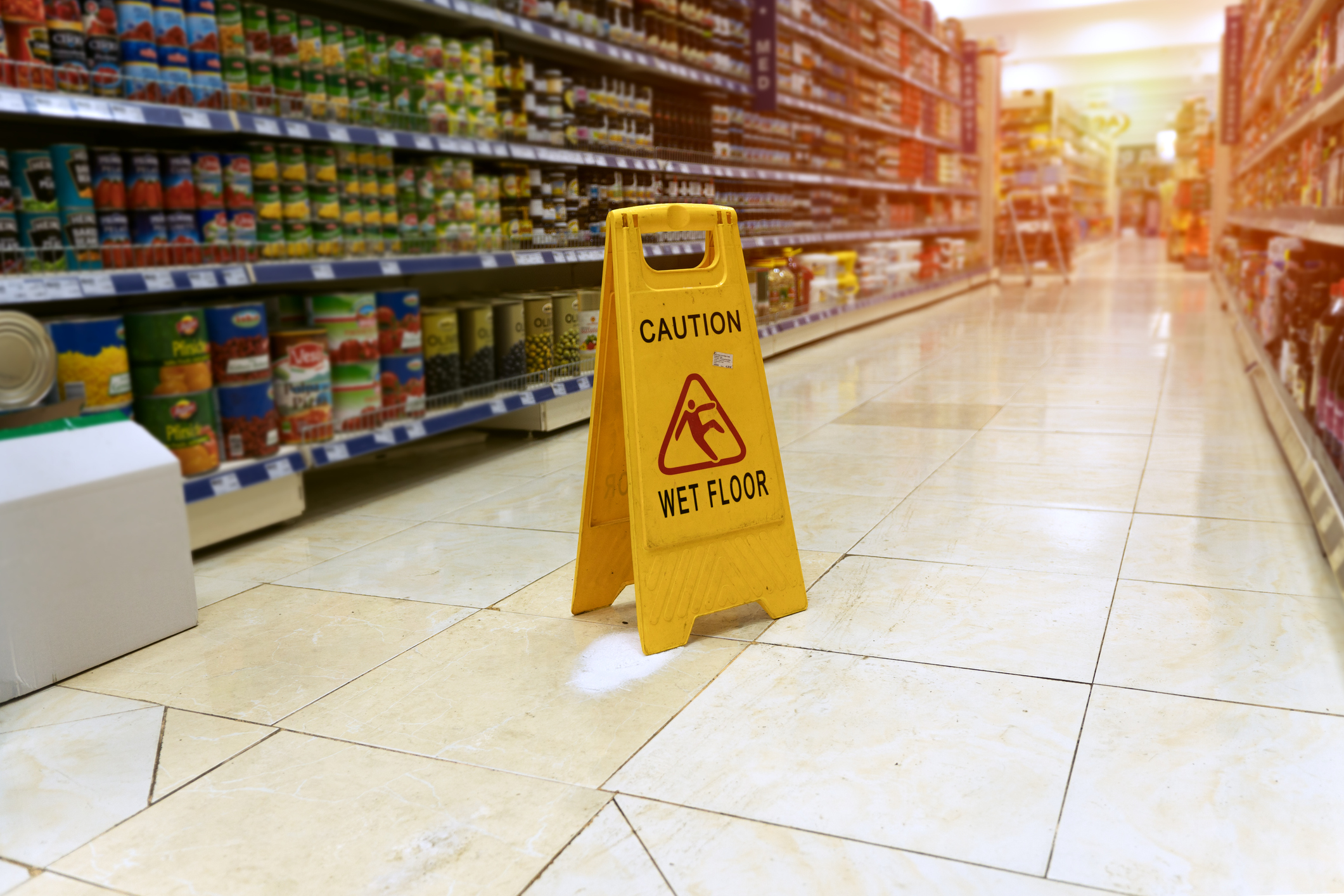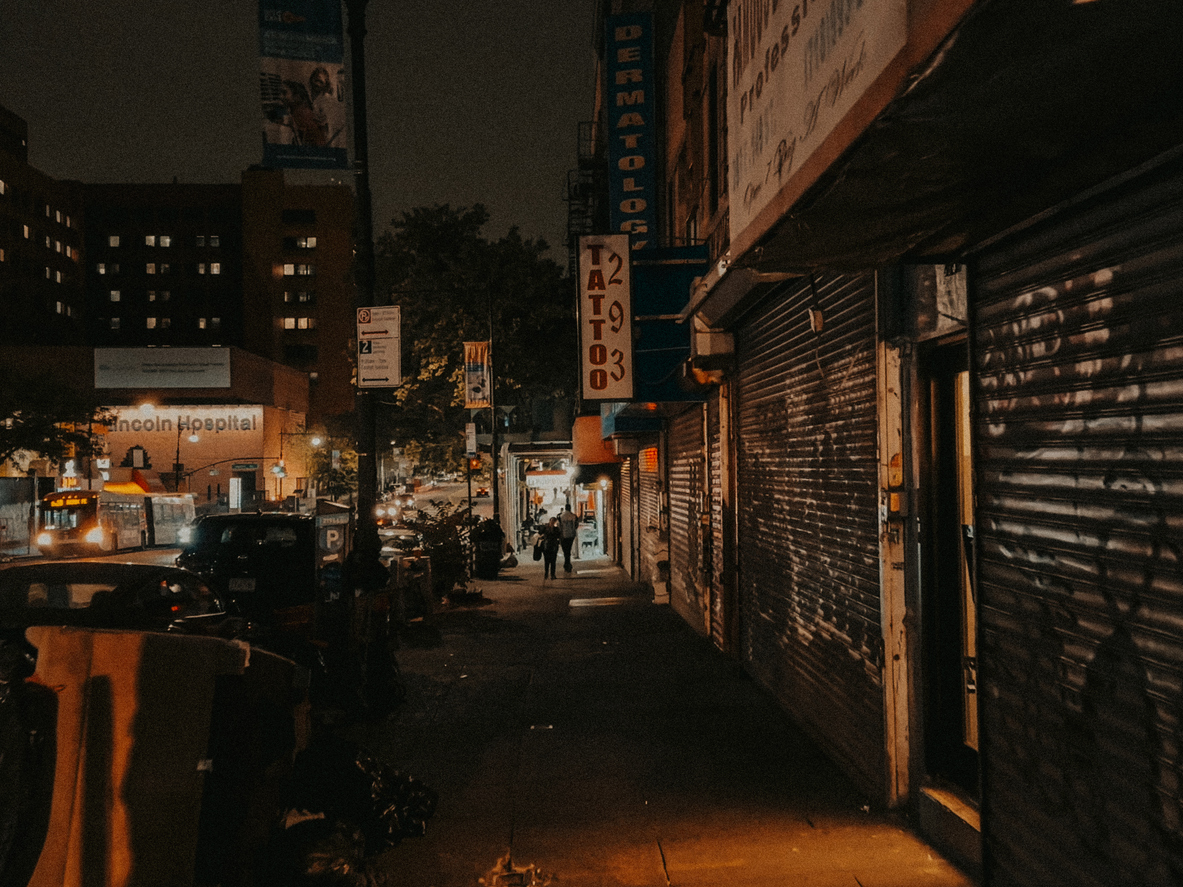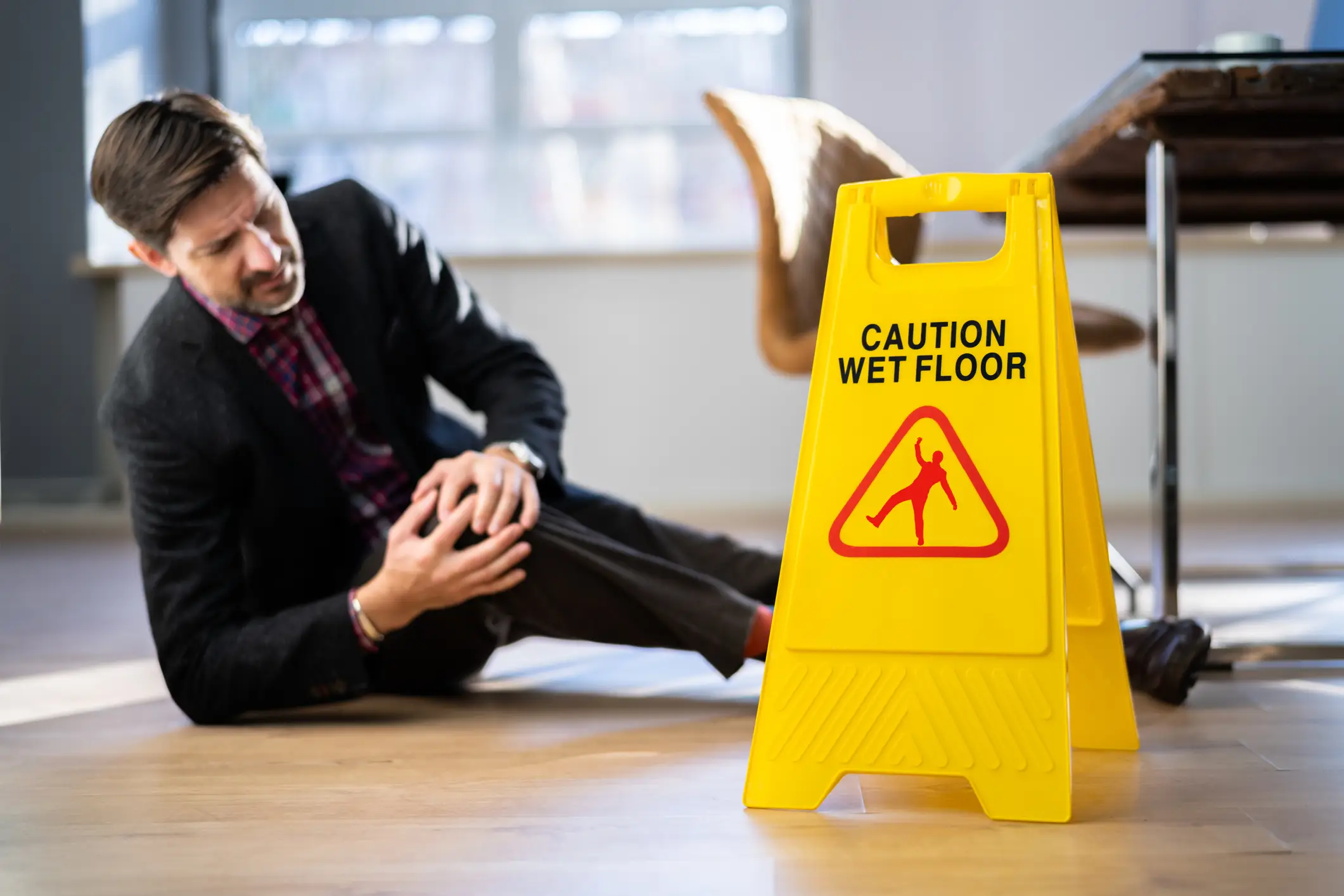New York Slip and Fall Lawyer

Have you recently experienced significant injuries after a slip and fall in New York? The NYC slip and fall lawyers at The Platta Law Firm won’t let you assume financial responsibility for an accident that was someone else’s fault.
An experienced NYC attorney works hard to determine the cause of your slip and fall, collect evidence, prove your case and assist you in getting the compensation you are due.
You will not have to bear the cost of your injuries alone. Slip and fall accidents are the leading cause of death and injury among Americans over 65 and impact the lives of many others, despite their age. If you have experienced an injury from this type of accident, you may be able to receive a large cash settlement from those at fault.
How Can a Slip and Fall Lawyer at The Platta Law Firm Help You?
The Platta Law Firm’s slip and fall lawyers have the resources and experience to review your case and investigate the accident thoroughly. Proof of responsibility for a collision is crucial to recovering damages. We will represent you in initial talks with your insurer and during negotiations. The Platta Law Firm’s legal advocates are as comfortable at the negotiation table as they are in the courtroom. This makes insurance companies take notice and refrain from underhanded practices.
Slip and fall accidents are the leading cause of death and injury among Americans over 65 and impact the lives of many others, despite their age. If you experienced an injury from this type of accident, you might be able to receive a large cash settlement from those at fault.
What Should You Do After a Slip and Fall Accident?
Depending on your injuries, if a claim is filed, the following actions can help you obtain the compensation you deserve:
- Visit a medical professional who will examine you and diagnose any injuries you may have. A doctor’s report will prove your injuries when you file a claim. The physician will also tell you what symptoms to look for in the days and weeks after the accident.
- Report the accident to the police, a supervisor, store manager, landlord or business owner.
- Document everything by taking pictures to preserve evidence of your accident at the scene. Write down what you were doing before the accident and the time and date of the incident.
- Look for and document surveillance cameras near the accident site. They are usually found throughout the store or area.
- Ask witnesses for their contact information.
- Obtain a police or store report of the accident. Most establishments, from grocery stores to parking lots, use an accident report form.
- Stay vigilant and stick to the facts when talking to the party at fault, the police or the insurance company. Sometimes, an innocent remark can be seen as an admission of guilt.
- Keep away from social media, and speak to your attorney for guidance.
How Many Slip and Fall Accidents Happen in New York City?

Slip and fall accidents are common in New York. The frequency is especially true for people over the age of 55.
Even when you are using your best practices to stay safe, a slip and fall incident can happen through no fault of your own. Unfortunately, when one of these accidents occurs, the legal process is not simple and the legal insight of a slip and fall attorney is beneficial.
What Are the Most Common Causes of Slip and Fall Accidents?
Wet and uneven surfaces are the most common cause of slip and fall accidents. Slippery surfaces result in more than half of all reported incidences of slips and falls in New York. Some others are:
- Inclement weather: No one controls the weather, but commercial, residential and government building managers and owners can take precautions against slip and fall injuries. Failing to do this can make the owner/manager responsible for damages and liable for the accident.
- Inadequate job training: Poor job and OSHA training can lead to slip and fall accidents. Construction workers face the highest risk of injury while dealing with increased hazards.
- Age and health: Age or physical condition can make some people more vulnerable. The elderly and infirm have a reduced sense of balance, leading to life-threatening injuries.
- Lack of handrails: Missing or damaged handrails make those relying on these systems more at risk. The lack of handrails takes away the support they need.
- Poor lighting: Buildings with poor lighting and outside premises with non-working lights make it hard for people to navigate the property safely.
How a Slip and Fall Lawyer in NYC Calculates a Settlement
The value of a slip and fall claim is not standard, and no two cases are alike. Several factors may affect the settlement. Your NYC slip and fall attorney’s experience and skills are essential when calculating compensation.
Medical Expenses
This category includes all medical expenses associated with the accident, such as hospital care, diagnostic tests, physician fees, medication and rehabilitation. Your attorney will also calculate future medical costs such as surgeries, therapies or medicines an injured party might need. In addition, the claim includes at-home nursing care, necessary assistive devices and structural changes to the home or vehicle to accommodate the injured party.
Pain and Suffering
This category depends on the severity and permanence of your slip and fall injuries. It focuses on pain, emotional distress and psychological issues such as anxiety, insomnia, fear and post-traumatic stress disorder. Your NYC slip and fall lawyer will also factor in your inability to perform pre-accident tasks, socialize and enjoy activities in the future as you did in the past.
Lost Wages
Wage loss applies to a slip and fall accident that causes you to miss workplace activities. You are entitled to recover the cash value of lost wages caused by accident injuries. This loss can also include commissions, job perks and benefits. Your NYC trip and fall lawyer will calculate all wage losses until retirement if you are permanently unable to work.
Loss of Earning Capacity Value
This category represents lost earnings that result from an injury. It focuses on the ability to earn a living at the same level before an accident contrasted with the period afterward. This is not the same as loss of future earnings, which refers to the earnings that a person would have earned had there been no accident. Loss of future earnings can be difficult to prove because of variables that may affect future income, such as being laid off.
Loss of future earning capacity reflects the potential earnings the person would receive until retirement. This loss can occur when the calculations involve a young adult. Often, a younger injured person may not have worked very long in a specific job, so it would be hard to project what their earnings would be until retirement. However, if the injury interfered with their ability to earn a living across different industries, loss of potential can be calculated.
How Much Time Do I Have to File a Claim with a Slip and Fall Lawyer in NYC?
The deadline New York City slip and fall lawyers have to file a claim is within three years of the time the accident occurred. Nevertheless, some exceptions can change the deadline. Your case will not be heard if these deadlines have not been met:
- Municipal entities: Public transportation agencies or municipal entities such as the New York City MTA, the police department or the subway allow for only a 90-day window to report the accident and a year to file a lawsuit. This falls under municipal law claims such as those against a corporation, the school district, municipality or a public agency.
- Government claims: Claims against government agencies such as the post office also have a shorter time to file a slip and fall claim than a routine personal injury lawsuit. Your NYC slip and fall accident lawyer will be able to file all documents promptly.
Building Codes and a Slip and Fall: Who Is Responsible?
Building codes are in place to protect people using the premises and keeping them safe for occupants or visitors. They cover everything from electrical wiring to the installation of staircases structured to provide safe access. If the property owner or manager does not comply with building codes, they are responsible if someone is hurt due to non-compliance.
Lack of adherence to building codes affects everyone who uses the building, causing injuries and possibly wrongful death.
There are state, federal and municipal building requirements. Businesses are subject to rigorous rules, some of which are listed below. It is always better to meet with the construction company or inspectors to ensure that all codes are followed in buildings such as hotels, commercial shopping centers, apartments, high-rises, stadiums and restaurants, among others.
Types of Building Code Violations That Affect Slip, Trip, and Fall Accidents
Building codes are laws that regulate the construction of structures and the area around them. They are implemented to keep the people who inhabit or visit the building safe. A lawsuit can be filed when they are absent and someone is hurt. Some examples are:
- Dropdowns: When there is a drop-down from a step or curb, there must be a warning that it is present. This also holds for uneven floors.
- Handrails: These must be present on a staircase and provide easily accessible support to users.
- Lighting: Proper lighting in any area at night or if it is dimly lit must be in place.
- Safe staircases: The stairs must be safe. In some cases, time and heavy use can cause problems. It is the owner’s responsibility to inspect them regularly and fix any problem areas.
- Mats in slippery areas: Once again, it is the property owner’s responsibility to see that non-skid mats are in place if the area is slippery or known to have this problem. Grocery stores place mats near the produce section to avoid falls, for example.
- Ice removal: The building owner is required to remove ice and snow as soon as possible after a storm. Many accidents occur when initial clearing leads to icing over at night.
- Escalators: It is essential that escalators and elevators receive routine maintenance. A problem with their function can result in serious injury or even death. Trips and falls are common on an elevator where the lift floor is not even with the entrance or exit area. Water on an escalator from a leak or in front of an elevator can cause a slip and fall accident.
Is Inadequate Lighting Leading to a Slip and Fall a Reason to File a Lawsuit?

Yes, it is. Poor lighting can cause someone to trip over an unmarked curb or a separator used for vehicle parking. It can also mask an oil slick or a pool of water, leading to a slip and fall. Inadequate lights can also hide ice. Parking garages are notorious for poor lights, and outside lots can also be too dark to be safe. The owner or manager has the obligation to inspect the lights regularly to ensure none are broken and they provide adequate illumination.
If you fell due to inadequate lighting, you may be able to file a lawsuit against the owner of the property or its manager. Your NYC slip and fall lawyer can provide options available to you after investigating the accident site.
What Is the Time Limit for an Owner to Recognize Hazardous Conditions?
The law will say that a responsible owner needs to be aware of hazardous conditions or should know about them. The time limit to recognize a hazardous condition may differ from one situation to another. For example, a spill on a restaurant floor should be cleaned within a short time because it is highly visible. Cracked concrete may take a little longer to fix. Nevertheless, the bottom line is that the hazard was fixed in an appropriate amount of time.
Grocery stores must set up an inspection plan to monitor hazards on the premises. Usually, a store employee inspects the premises every 20 to 30 minutes and would visualize a spill and clean it before a slip and fall happens. Your slip and fall attorney in NYC might use surveillance cameras placed throughout the store to see how long the spill was present and whether warning signs were in place until clean-up occurred.
Is a Homeowner Responsible for a Slip and Fall?
Yes, they usually are. All of the factors such as fixing a hazard they know or should have known about apply to a homeowner. Most homeowners have premises liability insurance for this purpose.
What Happens When a Trespasser Slips and Falls – Is the Owner Liable?
Yes and no. Usually, the owner is responsible for the safety of those who are on the property legally or who are invited. Trespassers are not covered. However, if the owner is aware the person is trespassing and does not make them stop, then they could be liable if they allow the hazardous condition to persist or design a hazard to foil entrance.
Children are not treated the way adults are if they are trespassing. For example, a child may see a swimming pool that is not secured and gravitate toward this attraction. Even though the child was not lawfully on the property, given their lack of fear and ability to judge that hazards exist, the homeowner might be responsible for their injuries.
Tripping Over a Sidewalk in NYC – Who Is Responsible?
Before 2003, the city was responsible. However, new rules made the business properties that abutted the sidewalk responsible for safety by maintaining them. This deals with cracks in the concrete, uneven pavement and eruption of tree roots that could interfere with pedestrian safety.
Under the New York administrative code for sidewalks, responsibility also covers the intersection quadrant nearest a building.
This does not apply to owner-occupied residential property. Trip and fall accidents are common and cases are complex. It behooves the injured party to obtain help from a sidewalk trip and fall lawyer in NYC.
Important Aspects of a Slip and Fall Claim
If you have been injured in a slip and fall accident, you may be entitled to compensation for financial damages. By filing a personal injury claim, a slip and fall attorney can help you recover damages for your trauma and will fight to get you the maximum compensation possible. They do this by taking the following actions:
- Evidence Gathering: Evidence to support your injury claim can disappear on the day of the accident. It is critical to act fast. Besides, without evidence, the claim cannot proceed.
- Filing an Incident Report: It is best to file an incident report if you can. It presents the facts of the accident concisely and clearly and can help if a lawsuit arises. Most businesses have accident report forms, and you should use them. This also allows you to obtain the names of employees and the manager. Ask for a copy of the report before you leave the store. If you fall on private property, you should compile a list of what occurred, making sure to describe your injuries and what caused the accident as well as the time and whether witnesses were present.
- Negotiating: Negotiations between the parties involved can start right away, but the defendant may intentionally draw out the process. Having a skilled NYC slip and fall attorney who is aggressive is the key to success.
- Poor Settlement Offers: Accepting a low-ball settlement can have disastrous consequences, especially with continuing medical issues. Generally, the insurance company asks the injured party to sign a waiver releasing the defendant from further claims related to the incident. Your legal advocate will identify a low-ball offer and discuss the reasons to wait.
Who Is Responsible for my Slip and Fall Accident?

The common thought is that the property owner is always responsible. In reality, multiple parties may be liable. Just because the accident occurred on a specific property does not make the owner the only one accountable for your slip and fall injury. There is the possibility of shared responsibility. A property management company may fail to maintain the premises and could be partly to blame.
On occasion, tenants are responsible for slip or trip and fall incidents. In addition, someone working on the property may cause a slip or trip and fall accident. This could be a landscaper who leaves his tools lying about and does not post warning signs. Likewise, someone doing construction work may be careless.
Where Do Slip and Fall Accidents Commonly Occur?
Although a slip and fall can happen anywhere, specific locations are more likely to present risks. They are:
- Restaurants and retail stores are frequently the scenes of slip and fall accidents.
- Dimly-lit bars are prime locations for this kind of accident.
- Poor lighting, ice during extreme winters and cracks or uneven pavement are major hazards in parking lots and garages.
- When compared with commercial spaces, private homes tend to have more defects because there are fewer rules and regulations.
- Public areas such as swimming pools, bathrooms, parks, sidewalks or government buildings always pose a risk for slip and fall accidents.
Who Is Most Likely to Have a Slip and Fall Accident?
Specific segments of the population are more likely to be involved in slip and fall accidents. Here are the most common:
- Those with age-related risks: Elderly people over 65 are at the highest risk of slip and fall accidents. Those over 55 are the most likely to slip and fall at work.
- Disabilities: Physically disabled people are at a high risk for slips and falls. Injuries can be more severe for those with certain disabilities.
- Medication-related injuries: People on some medications may become less alert and find it difficult to navigate their surroundings. Of course, this all depends on the medication, but you are statistically at a higher risk.
- Occupation risks: Workers in hazardous professions such as construction or the military are at the greatest risk of injury.
Successfully Resolved Slip and Fall Cases by The Platta Law Firm
Below are some of the slip and fall cases we helped our clients either settle or win. Compensation amounts like this secure a financially stable future for our clients and their families.
- $3,250,000 for a plumber who slipped on plastic sheeting while working at the subway station.
- $3,100,000 for a painter who slipped off of an affixed ladder at work.
- $2,920,000 for a woman injured when she tripped over a poorly leveled elevator.
- $2,500,000 for a tenant who slipped and fell on ice in front of his apartment building.
- $2,350,000 for a worker who tripped on debris at his worksite.
- $2,200,000 for a roofer who slipped on ice atop a library building.
- $2,200,000 for a construction worker who tripped on an unsecured scaffold.
- $800,000 for a mother and son who slipped and fell on ice outside of a Brooklyn store.
Call The Platta Law Firm for Help
Are you ready to contact us after a slip and fall injury? Our team of slip and fall attorneys in NYC are here for you 24/7 since injuries do not happen only from 9:00 a.m. to 5:00 p.m. Call us at (212) 514-5400, or leave your contact information on our online form. Don’t suffer traumatic injuries and financial hardship due to another’s negligence. The Platta Law Firm’s slip and fall lawyers in NYC will fight to get you the compensation you deserve.


